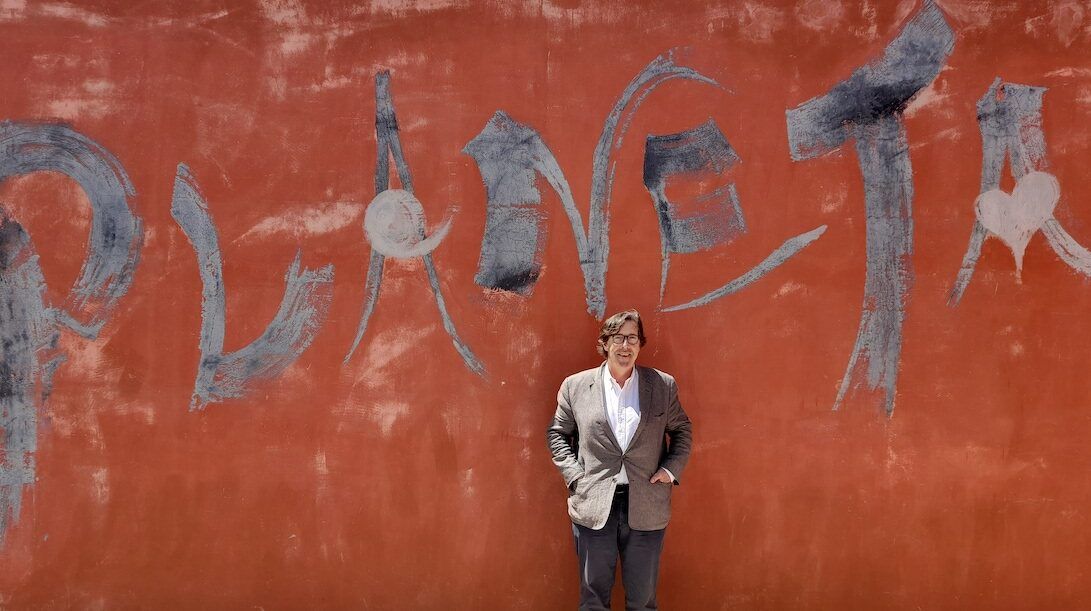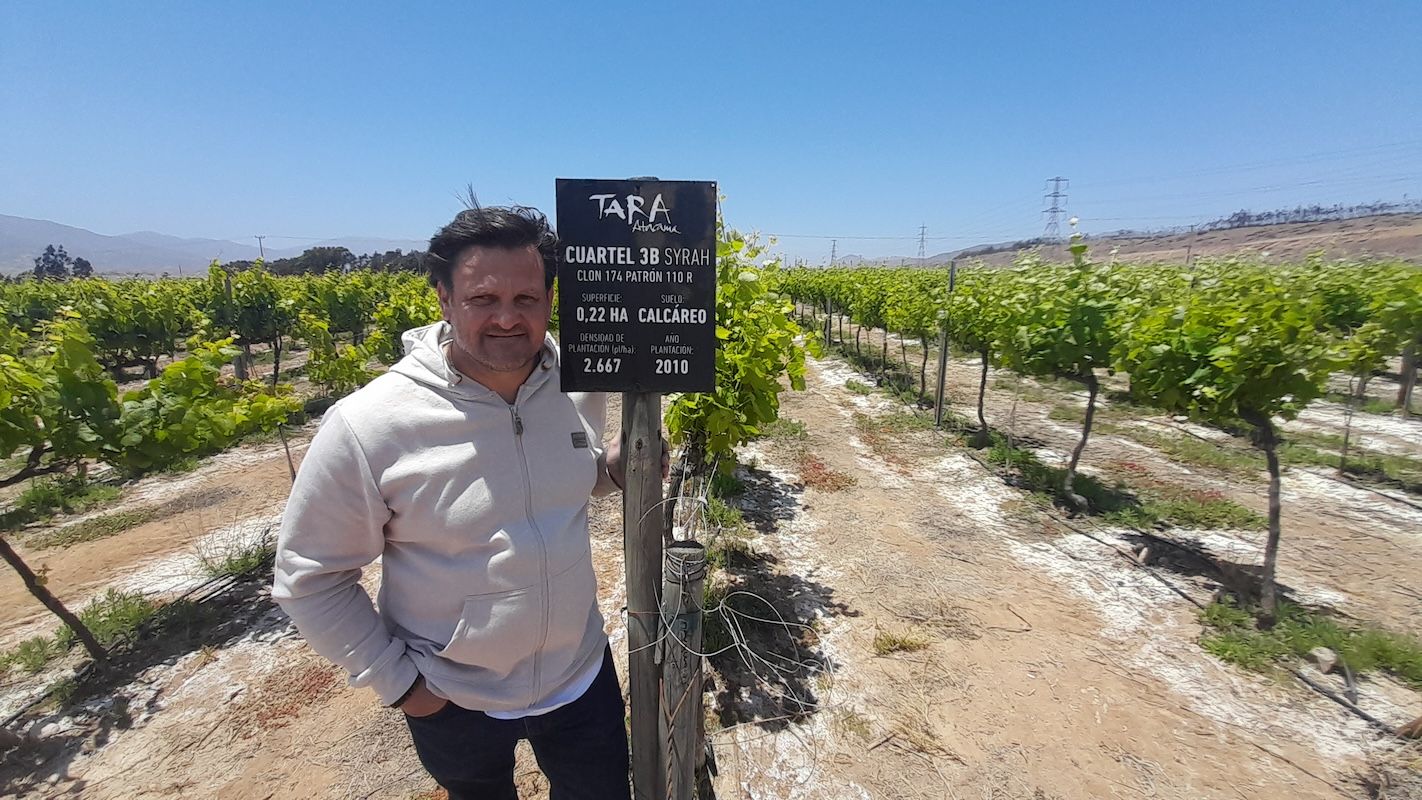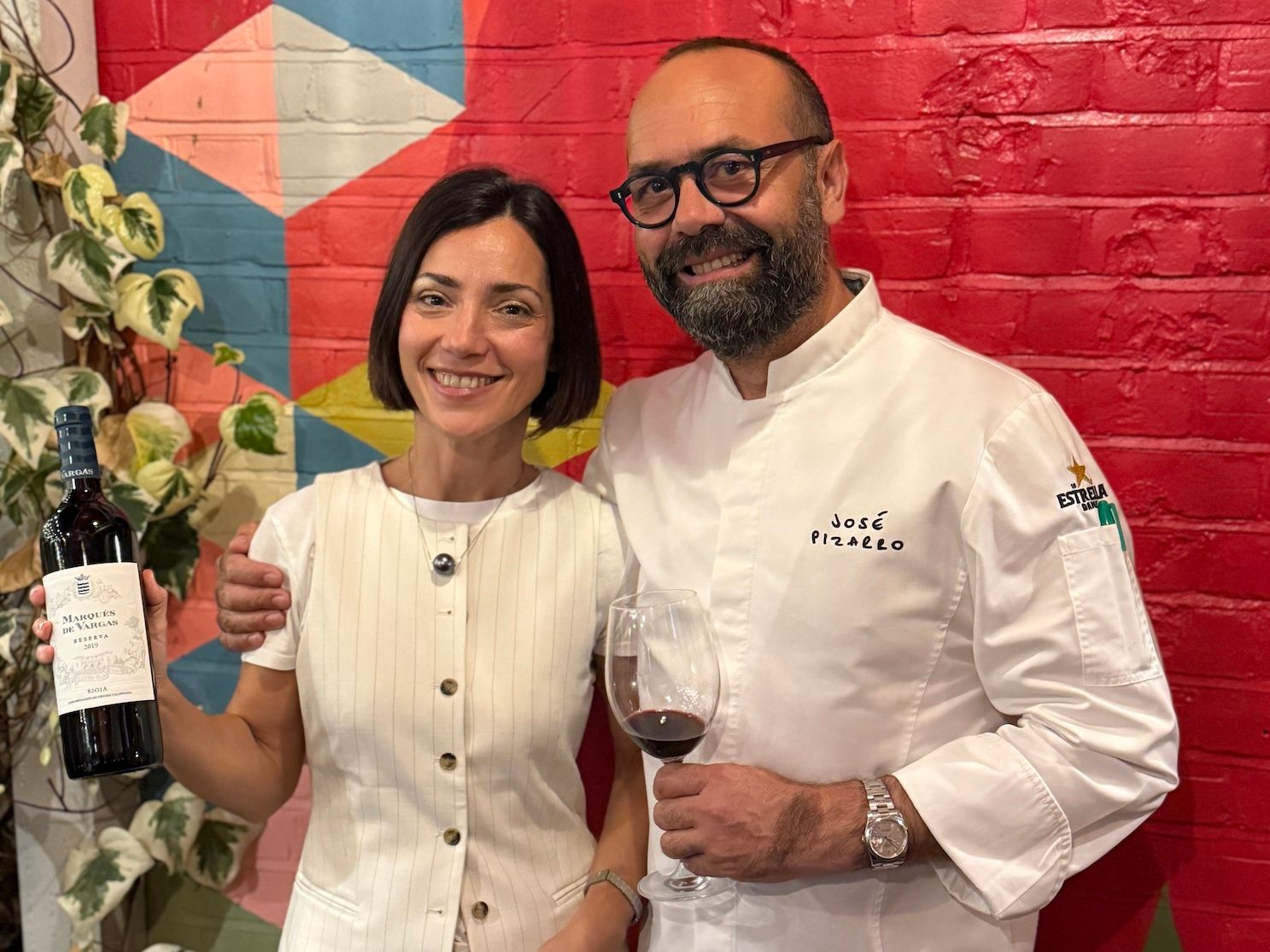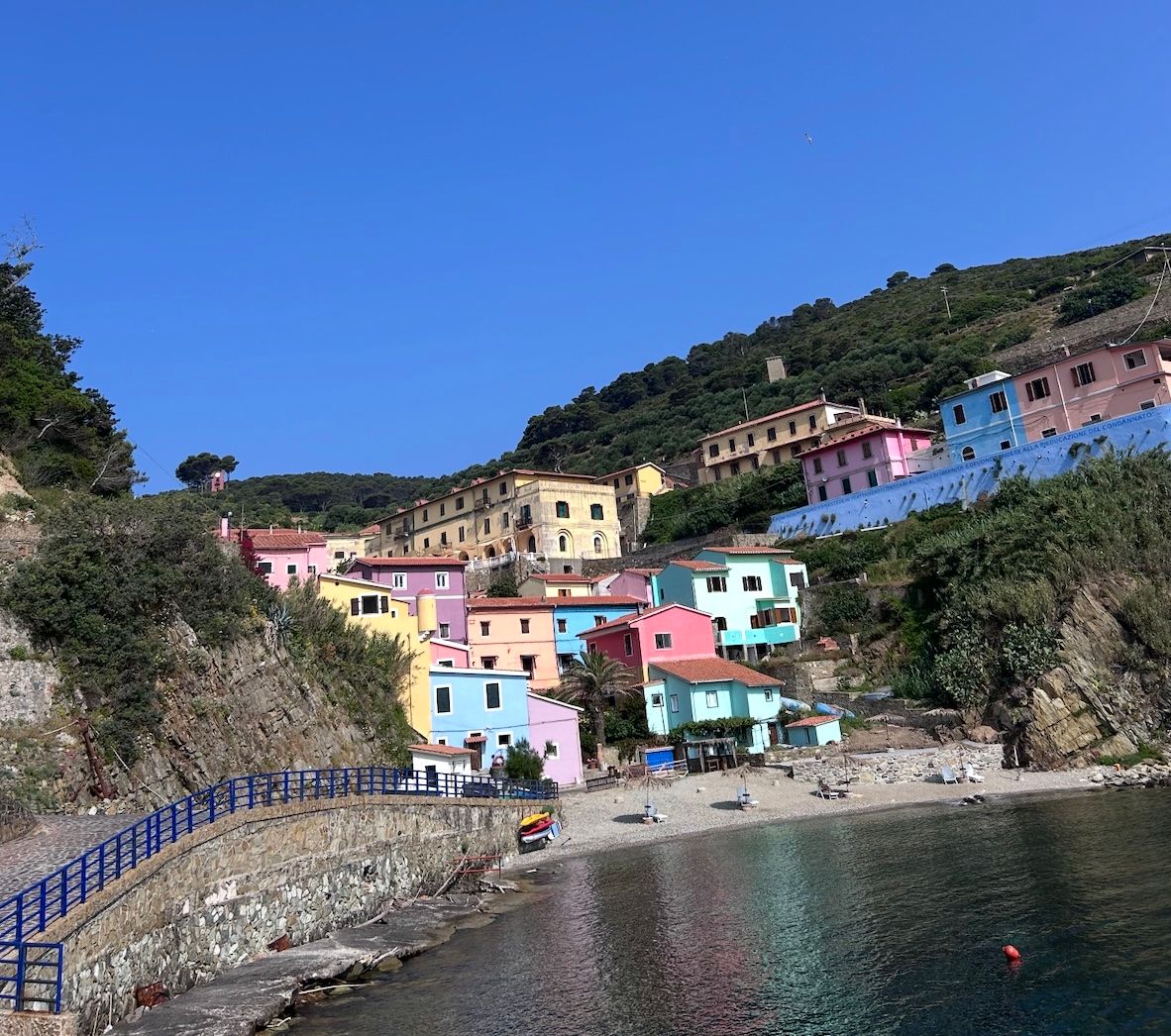“Indeed for many, Sicily has become Italy’s most exciting wine region,” writes Dean.
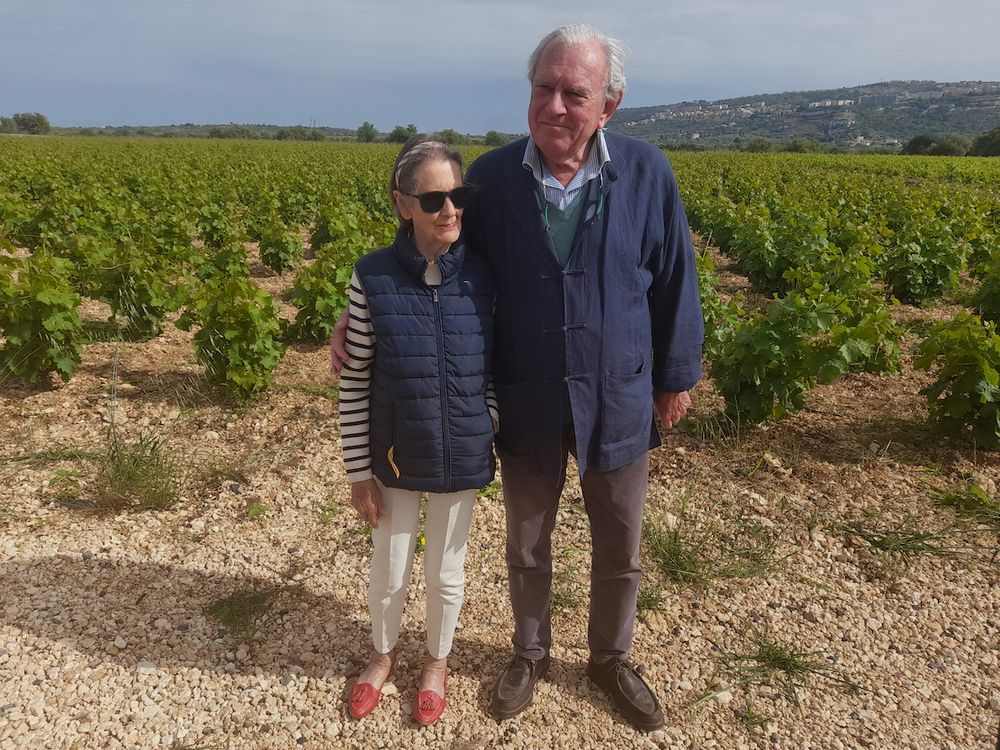
The last great wine project: Peter and Susie Vinding-Diers in Montecarrubo, Sicily
Winemaking aristocracy moves to Sicily
It is telling that such a legendary figure of the global wine industry as Peter Vinding-Diers settled on Sicily for his final foray into winemaking with his boutique estate Vinding Montecarrubo. That was 20 years ago when the charismatic Dane, then 60, and his British wife Susie acquired some land in the south-east of the island. Since then, thanks to Vinding-Diers and other notables like Alessio Planeta, who was named winemaker of the year by the American publication Wine Enthusiast in October, Sicilian wines’ inexorable rise in reputation has continued unabated.
Despite having just become an octogenarian, Vinding-Diers has the drive and sparkle in his eyes of a much younger man. He spent nearly all of November on a sales and marketing trip in France, where he lived as a winemaker in Bordeaux for nearly a quarter of a century. There he won acclaim from none other than renowned research scientist, Denis Dubourdieu, for proving how native and ambient yeasts can dramatically influence a wine. Vinifying the same Semillon fruit from his own Rahoul estate in Graves in three different tanks with three yeast strains – one from Lynch-Bages, another from Angludet and the last from Rahoul – the three wines showed quite differently.
“Peter intuitively saw and understood what had taken me 20 years to prove scientifically,” Dubourdieu said. The year after, in 1986, Vinding-Diers was elected to the Académie du Vin de Bordeaux, which he regards as the greatest accolade of his career.
Not long after an 11-year sojourn in Hungary where he co-founded the Royal Tokaji Wine Company with Hugh Johnson, Vinding-Diers opted for Sicily ahead of somewhere like Tuscany as he found it more welcoming and open.
“I landed up at the property we called Montecarrubo because of the carob trees on the estate,” he said of his estate near Melilli, 25 km north of Syracuse. “We were planting on soils that had never seen vines, so we farmed organically from the start. The site is on the edge of an old volcano with strata of lava, loess and washed-out clay. This seduced me as there was nothing here. I love it here. The local people are curious and helpful, and I’ve been free to do exactly what I want.”
What he wanted to do, in particular, was plant Syrah. He tried Sicily’s indigenous varietal, Nero d’Avola, but found it never ripened fully as his vineyards were in a cooler micro-climate. His Syrah, though, is as good as it gets on the island, with his two single vineyard labels – Vignolo and Vigna Grande – being the best I tasted of a score or more of Sicilian Syrahs. The 2022 versions were both wonderfully clean and fresh, with both very low pH (3.2) and SO2 (15mg/l free and 35 total). No new oak was used, just second and third fill medium toast.
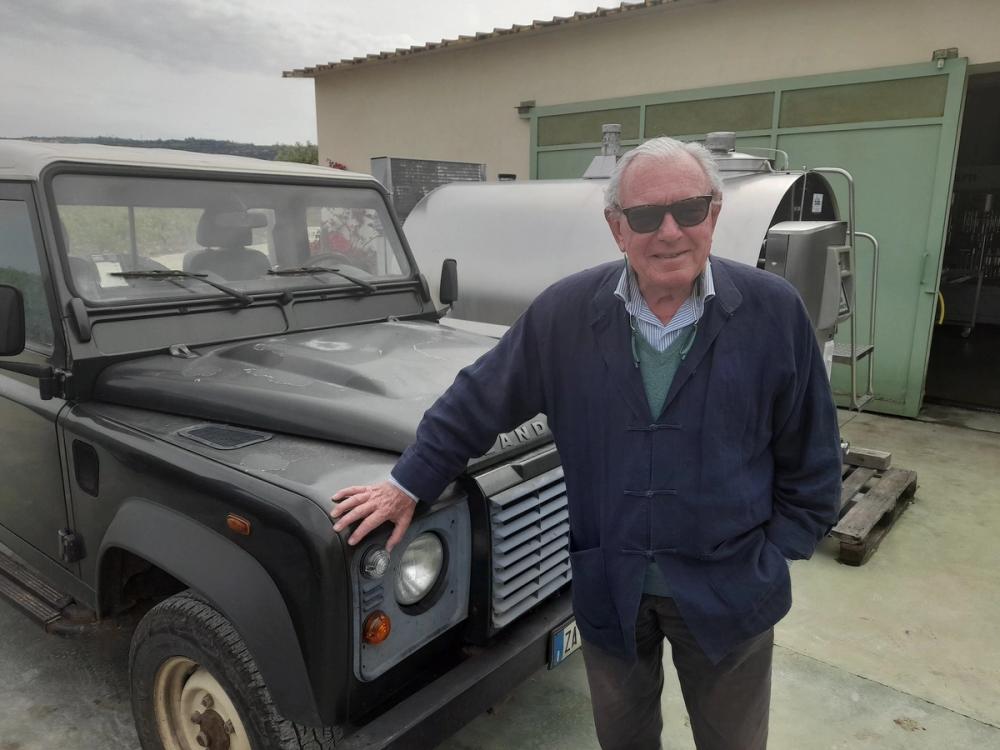
Vinding-Diers – selling Sicilian Syrah en primeur
Ever the innovator, Vinding Diers revealed how in 2022 he had decided to pick his Syrah grapes much earlier than usual to make wines that were 12% or under.
“In 2022, we picked early and made some very pleasurable wines which were light with a maximum of 12% alcohol, with lots of fruit and easy to drink,” he said. “It was an experiment, answering the call for low alcohol wines, but was it right? Susie and I still wonder. After all, it is totally out of place here in Sicily of all places to go out and pick early in order to try and make ‘Burgundy’ wines. It must be wrong! Pick early, yes, but respect where you live and give the plants a chance to produce what we should here, and not what we are told we should do. We have always picked with good acidity, and nice tannins, making elegant wines which would last for some years. The alcohol would be between 12.5 and 13.5% max, and I think that is where we should try and remain.”
Nevertheless when buyers became aware of the 2022s, they snapped them up, helped by Vinding-Diers’ idea to sell ‘en primeur.’
“There was a moment this summer when nothing moved,” he said. “The coffers were empty and the mood was in the basement. I remember sitting down in the library to read my old friend Jean Michel Cazes’ book, and he talked about how poor they were in the early ‘70s. Then he described how he got the splendid idea to sell en primeur, and the train began to move again. I jumped out of the sofa and immediately sat down to write an invitation to buy our Vignolo 2022 en primeur for €30 instead of €35 which I pointed out would be the price after September 1. Our order book was suddenly full and we sold a little more than 4,000 bottles in two weeks out of 5,000 – we are now selling at €35 and it still flies out. But now comes an extra flower. Everybody wants a pallet, so they have all filled up with the other wines. It is hard to describe my joy at this move.”
Planeta – 2023 winemaker of the year
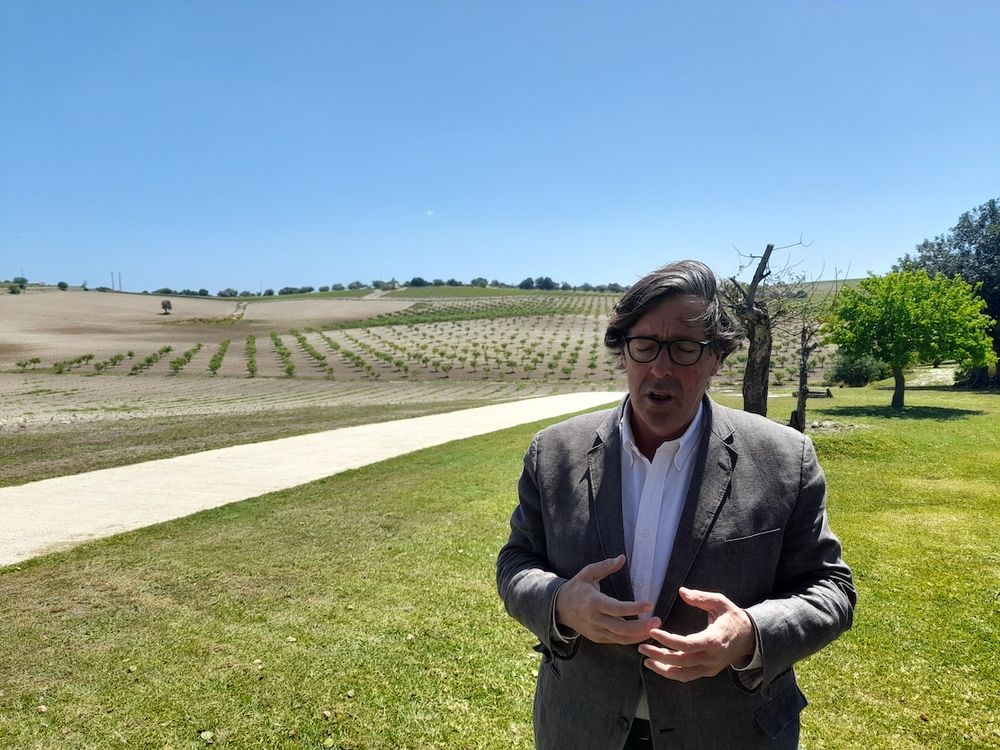
“Deeply honoured.” Alessio Planeta
Meanwhile, Alessio Planeta, CEO and technical director of Planeta, described himself ‘deeply honoured’ by Wine Enthusiast’s best winemaker of 2023 award, the first Italian to receive it since 2007.
“It is a recognition that I am happy to share with our entire staff,” he added. “Next year, we will be celebrating our 30th anniversary, and receiving such a prestigious tribute at this time makes me proud of the solid reputation that the wines of Sicily have won across the globe.”
Planeta’s vineyard holdings, spread all over Sicily, total over 400 hectares, and remarkably, all have been certified organic since 2022. In addition, all have been certified sustainable since 2011 by Fondazione SOStain Siciliana. Alessio is based at the 41-hectare Buonivini estate near Noto in the south-east of the island, where we visited him.
“When we arrived in the late 1990s, Noto was a ghost village that was known for bulk wine,” he recalled. “Then came the earthquake, which led to restoration and a boom. There is huge potential for viticulture in Noto as it’s a denomination that is different from other parts of Sicily. For we have these white soils which are super calcareous, and the local varietals definitely prefer them. We get such a fine regional expression of Nero d’Avola.”
That was evident from a vertical tasting of Planeta’s top-of-the-range Nero d’Avola label, Santa Cecilia, from 2005 through to 2021. The tannins of all those vintages older than 2013 had softened noticeably. Patricia Toth, the company’s Hungarian-born winemaker who was recruited in 2005, declared that “you can only find unique soils and terroir like Noto in three or four other parts of Europe. They offer opportunities for very long bottle-ageing, with the calcareous soils giving great acidity in the red wines.”
To prove this point, a big hole dug into a section of vines revealed their roots went as deep as nine metres.
Feudo Maccari – indigenous varieties
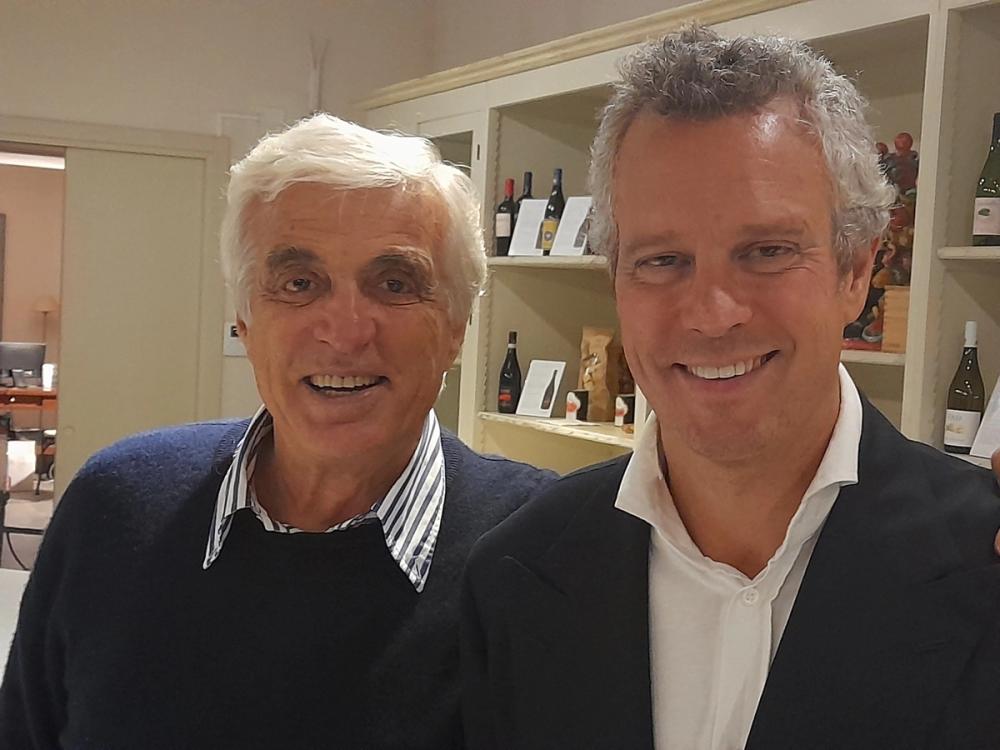
Antonio and Alberto Moretti Cuseri of Feudo Maccari
With its low annual rainfall (300-350 mm) and windy conditions, Noto has become a haven for organic producers. One such, Feudo Maccari, which is only six kilometres as the crow flies from Buonivini, has 55 hectares of bush vines on similarly calcareous soils. Some of the Nero d’Avola vines are 70 years old. The estate was bought by luxury goods entrepreneur Antonio Moretti Cuseri, who also owns another producer in the Etna denomination of Sicily as well as three other Italian wineries. His son, Alberto, is the international export director for all five estates.
While Feudo Maccari’s ‘Saia’ 2020 underlined how good Sicilian Nero d’Avola can be – possessing elegance, freshness, concentration, soft tannins and considerable length – its single varietal Nerello Mascalese ‘Animardente’ label from its Etna DOC winery displayed attractive red fruit and supple tannins, with structure coming from 20% new oak. Around 30% of the grapes came from vines over 100 years old, while the remainder was from young five-year old vines.
Giasira and Zisola
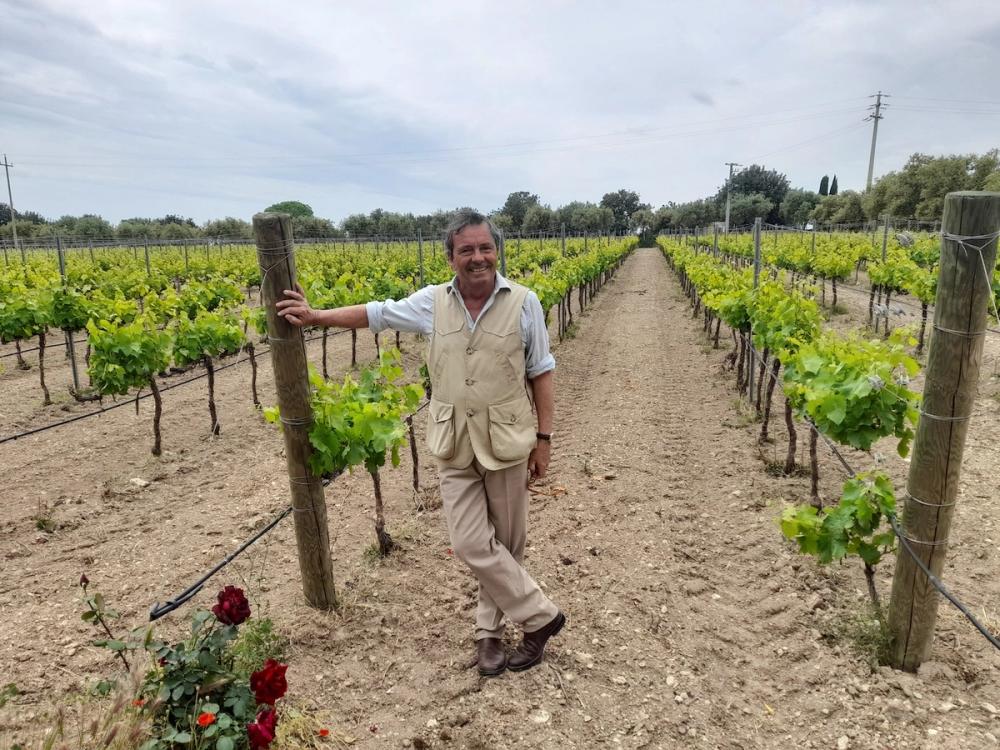
Seeking distribution: Giovanni Boroli, owner of Giasira
Another organically-farmed estate in the Noto denomination is Giasira, which has 13 hectares under vine and ten different labels. All of its energy needs are served by its own photovoltaic solar power system. Bought nearly twenty years ago by Piedmontese publishing and printing magnate, Giovanni Boroli, this stunning 130-hectare farm also has 3,000 olive trees, 2,000 almond trees, hundreds of citrus trees and scores of centuries-old carobs not to mention a canyon and a river.
Giasira, which produces Nero D’Avola, Nerello Mascalese, Moscato, Grillo and Catarratto exports mainly to Holland and Belgium, but would like to find a UK distributor.
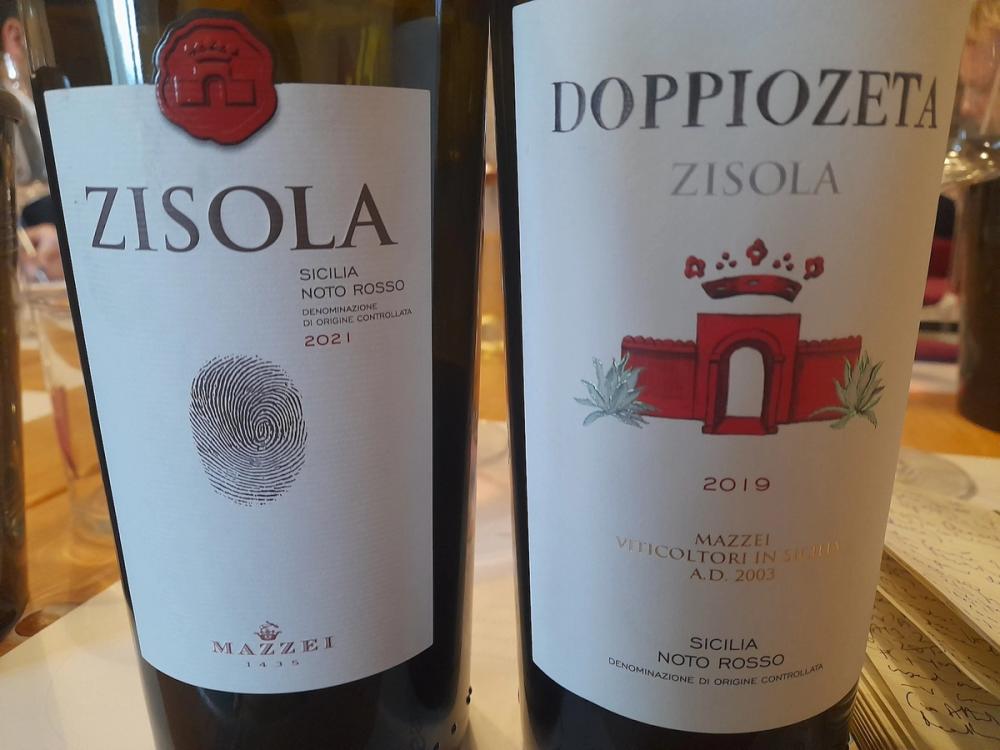
Already with sales channels in the UK – for example Davy’s Wine Merchants – is another Noto winery, Zisola. Apart from two good Petit Verdot and Syrah single varietal wines, we tasted two fine examples of Nero d’Avola, both Sicilia Noto Rosso DOCs. The super-premium Doppiozeta 2019, whose fruit came from the best four of 29 parcels, was aged in 30% new oak while the mid-market generic label from 2021 saw only old oak.
Zisola was also bought early in the new millennium (in 2003) by the Fonterutoli-owning Mazzei family whose forebears started making wine in Chianti in 1435. The very fact that so many wealthy Italian mainlanders with a history of winemaking have invested in Sicilian estates cannot be insignificant. Although the amount of hectares under vine on the island has come down from a twentieth century high of 140,000 to to today’s 95,000, that is symptomatic of higher quality and less bulk wine production. Indeed for many, Sicily has become Italy’s most exciting wine region.
10 wines that caught the eye and palate
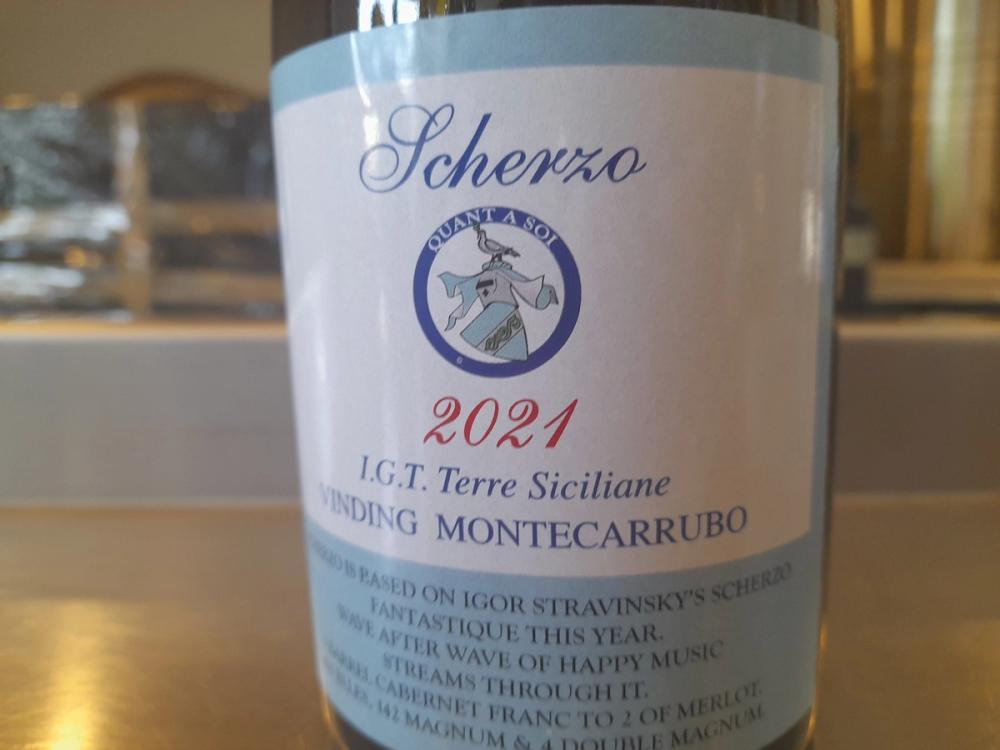
Vinding Montecarrubo Scherzo 2021 IGT Terre Siciliane, 14% abv
Two thirds Merlot, one third Cabernet Franc; named after one of pianist Igor Stravinsky’s earlier works; as Peter Vinding-Diers says: “wave after wave of happy music streams through it.” Need one say more?
Vinding Montecarrubo Syrah 2022 IGT Terre Siciliane, 12% abv
Violet, spice and earthy tobacco aromas with red fruit, black olive and lightly peppery notes on the palate. Mineral and balsamic hints on a long finish. Beautifully fresh, elegant and poised with very supple tannins.
Planeta Allemanda DOC Noto 2022, 12% abv
100% Moscato Bianco; named after a Baroque opening dance – “we imagine this as a perfect aperitif wine” says Alessio Planeta. Invigorating freshness (pH3.35) with fragrant jasmine and rose petal aromas and pink grapefruit notes.
Planeta Santa Cecilia DOC Noto 2018, 13% abv
100% Nero d’Avola; a cool vintage, and an outstanding one; cherry, plum and blueberry notes with princely elegance, vivid freshness and extended length; firm but beautifully integrated tannins.
Feudo Maccari ‘Saia’ 2021 Terre Siciliane IGT, 14% abv
100% Nero d’Avola; black olive, cherry and earthy notes with soft tannins; structure from 30% new oak, which is well absorbed; lovely concentration and length.
Feudo Maccari ‘Family & Friends’ Grillo 2021 Terre Siciliane IGT, 14.5% abv
100% Grillo; crisp, dry stonefruit notes with a backbone of citrus from Sicily’s third-most planted grape after Catarratto and Nero D’Avola; some time spent in concrete eggs gives a touch of richness from lees circulation; bright acidity counterbalances 14.5% abv
Giasira ‘Morhum’ Terre Siciliane IGT 2020, 13.5% abv
100% Nerello Mascalese; named after the Latin for mulberry tree (Morum) of which a number are on the estate; very light in colour (Pinot-like); refined with red cherry fruit and silky tannins.
Giasira ‘Keration’ Terre Siciliane IGT 2020, 13% abv
Made from 100% Catarratto Bianco Lucido as opposed to Catarratto Bianco Comune (probably two clones of the same variety). The former is considered to produce the higher quality wine. Fermented in stainless steel at 16-18°C, this has some body, with fresh herbal citrus notes and minerality on a lengthy finish. Appealing as an aperitif or with food.
Zisola ‘Effe Emme’ Terre Siciliane IGT 2020, 14.5% abv
Made from 100% Petit Verdot 16-year old bush vines; ‘Effe Emme’ is the Italian for ‘FM’ as in owner Filippo Mazzei’s monogram; 16 months in French barriques (50% new); typically deeply coloured and powerful with zesty acidity and floral violet notes; firm, overt tannins need time but freshness and structure make this an ageworthy wine.
Donnafugata Ben Ryé Passito di Pantelleria DOC 2021, 14% abv
One of Italy’s great sweet wines. Made from sun-dried Zibibbo grapes (Muscat of Alexandria) on Pantelleria, the volcanic island between Sicily and Africa. Low bush vines (‘alberello pantesco’) that are over 100-years old are buried in a hole, with dry lava stone walls offering protection from hot dry winds. Golden-coloured, luscious and rich with 130g/l residual sugar. Giacomo Rallo founded Donnafugata in 1983 with wife, Gabriella, a pioneer of viticulture in Sicily.
